- Farmers refuse to give in to those who take produce without paying
- Thefts occurring at honesty on an almost daily basis
- Competition- Still time to name a calf
- Do you ever buy produce from the honesty boxes? Take part in our poll
JERSEY farmers say they are suffering thefts from roadside honesty boxes on an almost daily basis – but they are desperate to keep the Island tradition alive.
Last month the first Jersey Royals of the season were dug and went on sale in supermarkets and at roadside stalls across Jersey.
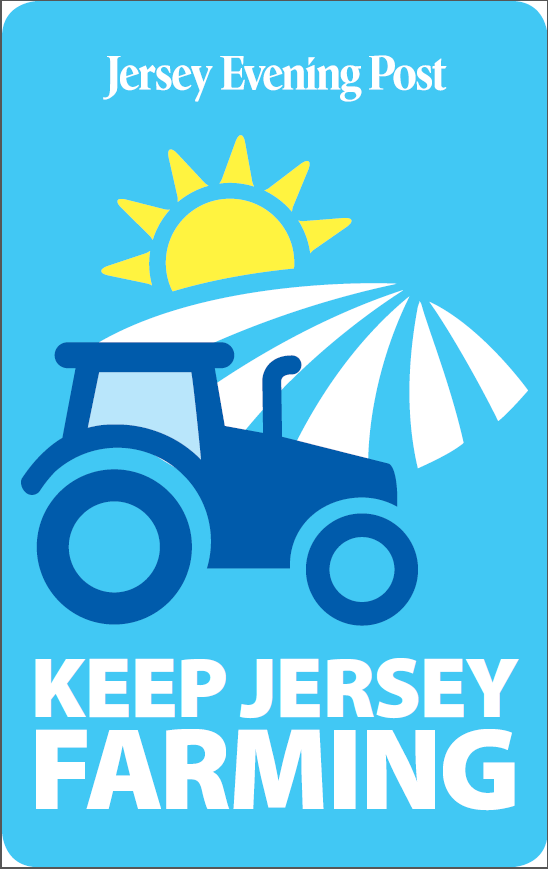
- Earlier this month, the JEP launched its Keep Jersey Farming campaign to back the industry.
- Our campaign is not just about buying local; it is about reconnecting the public with a way of life that has defined and influenced local culture and the environment for centuries.
- It will profile farmers, highlight the issues that affect the industry and promote seasonality and provenance.
- Farmers are the custodians of the countryside, which is under threat from competing land uses and over-development.
- They need your support to survive.
Jon Garton, chief executive of Genuine Jersey, called for Islanders to support farmers by buying local products.
But St Ouen farmer Christine Hellio, who has an honesty box outside her property in St Ouen which is monitored by several security cameras, said that although the majority of Islanders were supportive, thieving from roadside stalls like hers is a problem.
And Powell Le Feuvre, who works for his family business which has honesty boxes in St Mary and at L’Etacq, said that they regularly have between five and ten bags of Jersey Royals stolen a day in the late season.
‘I think people devalue them at the end of the season,’ Mr Le Feuvre said.
‘It is frustrating, but we won’t stop.
‘It is great for us and the customer because you cut out the middle man.’
And St Lawrence farmer Joe Freire said that over the years he had experienced five or six occasions when people have broken into his honesty box with crowbars to steal cash.
‘There are a fair amount of honest people around, especially around my area, but there are some people who are not honest,’ he said.
‘I think it is a minority and I think it tends to be the same people who do it. We have had to install cameras now.
‘It has happened to me on five or six occasions over the years when people have come up with crowbars and taken money from the box.’
Mrs Hellio, who runs her farm in St Ouen with her husband Didier, said she had confronted thieves in the past.
‘It is a problem,’ she said. ‘I have caught some people and they have offered to pay double or even work for me for free so I don’t tell the police.
‘I caught one woman who had not paid enough for a cabbage and her excuse was that it was for her rabbit.
‘But no matter what, we will keep going. This is an important part of Jersey life.
‘We have lots of people on holiday who just come to take photos of the honesty box.
‘We had a coach load once and I thought they wanted to buy veg, but they just wanted a picture.’
KEEP Jersey farming – a new JEP campaign championing one of Jersey’s oldest industries – is launched today.
Farming has been part of the fabric of Island life for millennia, but today growers need help to ensure their long-term survival.
These are proud, independent businessmen who want to be given the chance to make their farms sustainable without relying on government handouts.
A new approach is needed.
Today, Graham Le Lay, president of the Jersey Farmers Union, is calling for a sensible solution to deal with the many vergées of redundant glass houses which blight our beautiful landscape.
He is not calling for more millionaires’ mansions to be built, but for the opportunity to raise cash to reinvest in the land.
Every Islander can do their bit and buying great, fresh local produce is the place to start.

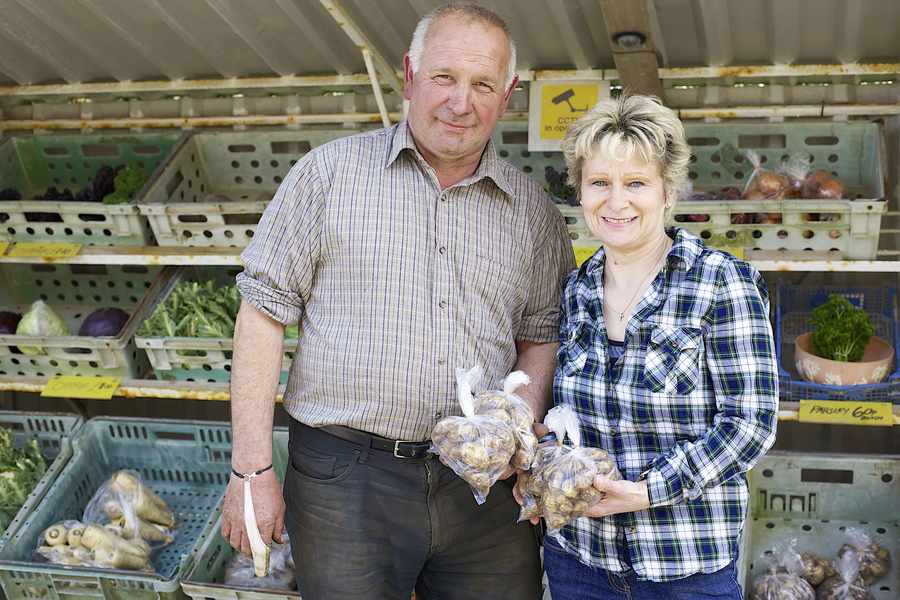
Genuine Jersey growers Didier and Christine Hellio talk about the much-loved Jersey Royal potatoes, which are available now.
Can you tell us a little of the history of the Royal?
It was in the 1880 that a local farmer, Hugh de la Haye, found two large potatoes. He cut them into pieces and gave them to his friends to plant. In the spring one plant produced an early crop with a flaky skin, and that was the birth of the Jersey Royal. It is also known as the Jersey Royal Fluke. Since then they have become the Island’s main export crop.
Describe the produce?
Potatoes are vegetables. There are about 5,000 varieties of potato worldwide but the Jersey Royal is unique with its paper-like skin. Whether you buy the smallest size known as mids or chats or the medium size known as ware, it is the skin that makes them unique and special.
What do they taste like?
The taste is nutty and sweet.
What dishes/flavours/ingredients go well with them?
It is a fabulous salad potato, but goes well with any dish that you may be serving, as they are always a treat.
Where are they grown and how?
The first Royals are grown in the côtils (steep slopes) and then in the fields. They take 12 weeks to mature. In that time the earliest ones are covered with plastic to protect them from frost, and a fleece-type material can be added on top of the plastic if the temperature gets too low. The first ones are harvested in April.
What should you look out for when buying Royals?
When buying them they should look fresh, no browning of the skin. No greening of the skin and they should feel firm.
How should you store them?
Ideally they should be bought fresh for that day’s cooking. If you have to keep them for a day then keep them cool and in a dark place so they don’t go green. I have frozen the mids for a treat for Christmas lunch.
How should you prepare them?
The skin should be easily removed by just washing the potato in water. When washed they should be pearly white. Wash Royals in water, place into salted water and boil for 20 minutes.
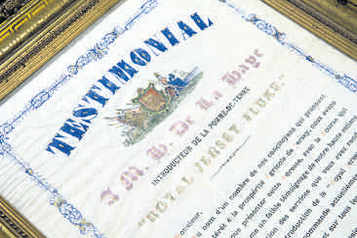
THE origins of the Jersey Royal can be traced back to farmer Hugh de la Haye, and there is a document that recognises his contribution to the industry.
In 2010, the Société Jersiaise had a chance to display a manuscript given to Mr de la Haye by fellow farmers in appreciation of the seed potato he produced in the 1880s.
Speaking at the time, the Société’s photographic archivist, Gareth Syvret, said that the tale of the first crop of Royals had gone down in Jersey folklore.
‘It’s a well documented story,’ he said. ‘At a supper with several farmers, Hugh de la Haye produced this amazing seed potato with 18 shoots. It was planted, and from that seed came this variety of kidney-shaped potatoes which we all recognise as Royals.’
The name Royal Jersey Fluke was apparently coined by Charles Le Feuvre, owner of newspaper La Nouvelle Chronique, after Hugh de la Haye had displayed some of his potatoes in the window of the office.
The manuscript shows that the farmers gave Mr de la Haye a ‘purse of money’ in gratitude for his discovery.
‘It’s a one-off potato and this manuscript is a testimonial to it,’ Mr Syvret said. ‘The essence of the document is that it’s a wonderful symbol of a twist in the history of Jersey agriculture.
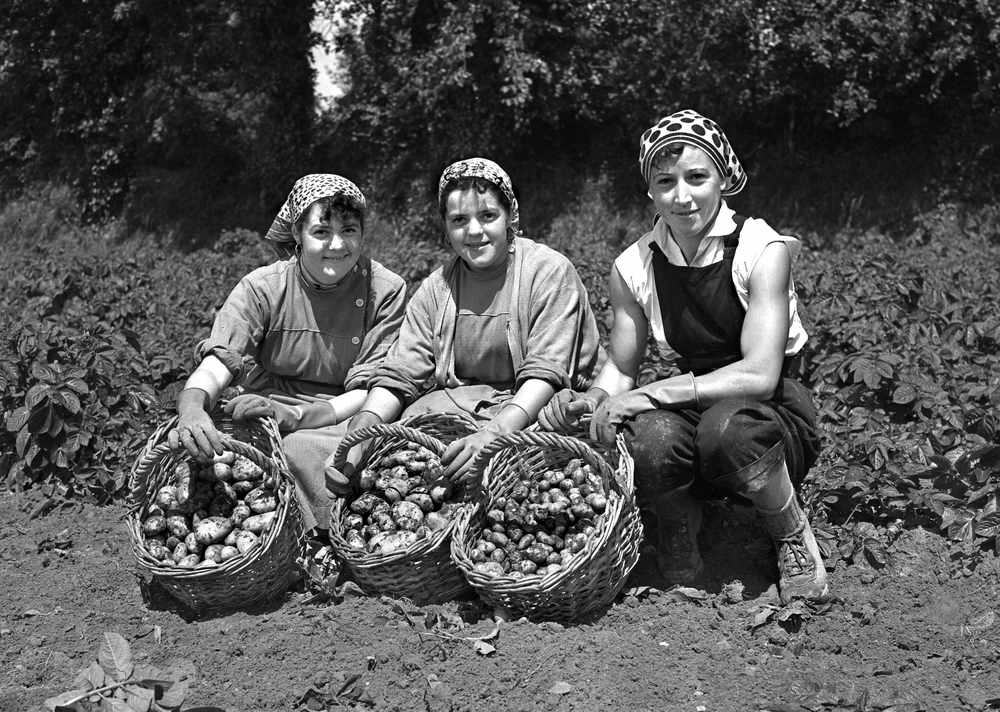
- Jersey Royals are a good source of complex carbohydrates, which tend to be the bodys main provider of energy and are necessary for growth and development. Nutritionists recommend that complex carbohydrates should make up the bulk of our diet to ensure a healthy and balanced diet is maintained.
- They are also a great source of vitamin C, especially the skins. 100g of Jersey Royals provides you with 25% of the RDA for vitamin C.
- Vitamin B is also present in potatoes and is essential in allowing carbohydrates to function properly and fibre is abundant and important for keeping the digestive system healthy.
- 100 grams of Jersey Royals contain 80 calories.
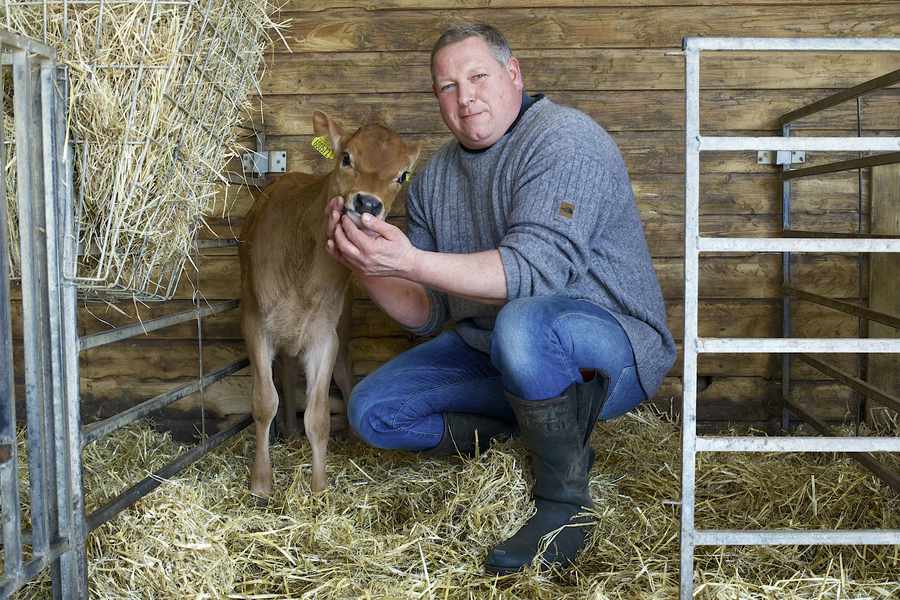
CLASSIC Herd dairy farm in St Peter is inviting families to name a calf and win a tour of the farm to find out what makes the Jersey cow so special.
Darren and Julia Quénault – and their son, Chas – are the Island’s only independent dairy farmers milking and making fresh dairy products on site at Manor Farm in St Peter’s Village.
In addition to producing milk, butter, yoghurt, cream, cheese and ice cream, they also produce beef and pork.
Every calf born in the Island has to be registered within seven days of birth to comply with EU legislation.
However, the Royal Jersey Horticultural and Agricultural Society (RJAHS) has been recording calves’ births since 1866 when the Jersey Herd Book was opened.
It is the register of the Island’s bovine population, recording the owner, a description of the animal, its ancestry, date of birth and many other facts.
The ancestry of all pedigree Jerseys in the world can be traced back to the Island’s Herd Book.
About 950 calves are registered in a year. Of this total, about 850 are pure bred Jerseys, including around 30 bulls. The remainder are Jersey Angus crosses for beef production.
The naming process must follow a pattern:
- Each herd has a specific name, in the case of Classic Herd Classic
- Next is a shortened version of the sire or fathers name. As the father is called Respectabull the name has to incorporate the word Respect
- Lastly comes a female name (or two names), containing up to 15 letters
- For example Classic Respect, followed by one or two names
To help Darren, Julia and Chas choose a name they would like families to explain why they think their name is suitable for a Jersey cow.
Entries should be sent to: Paula Thelwell, Jersey Evening Post, PO Box 582, Jersey JE4 8XQ or email countryside@jerseyeveningpost.com
The closing date is Tuesday 24 April.






